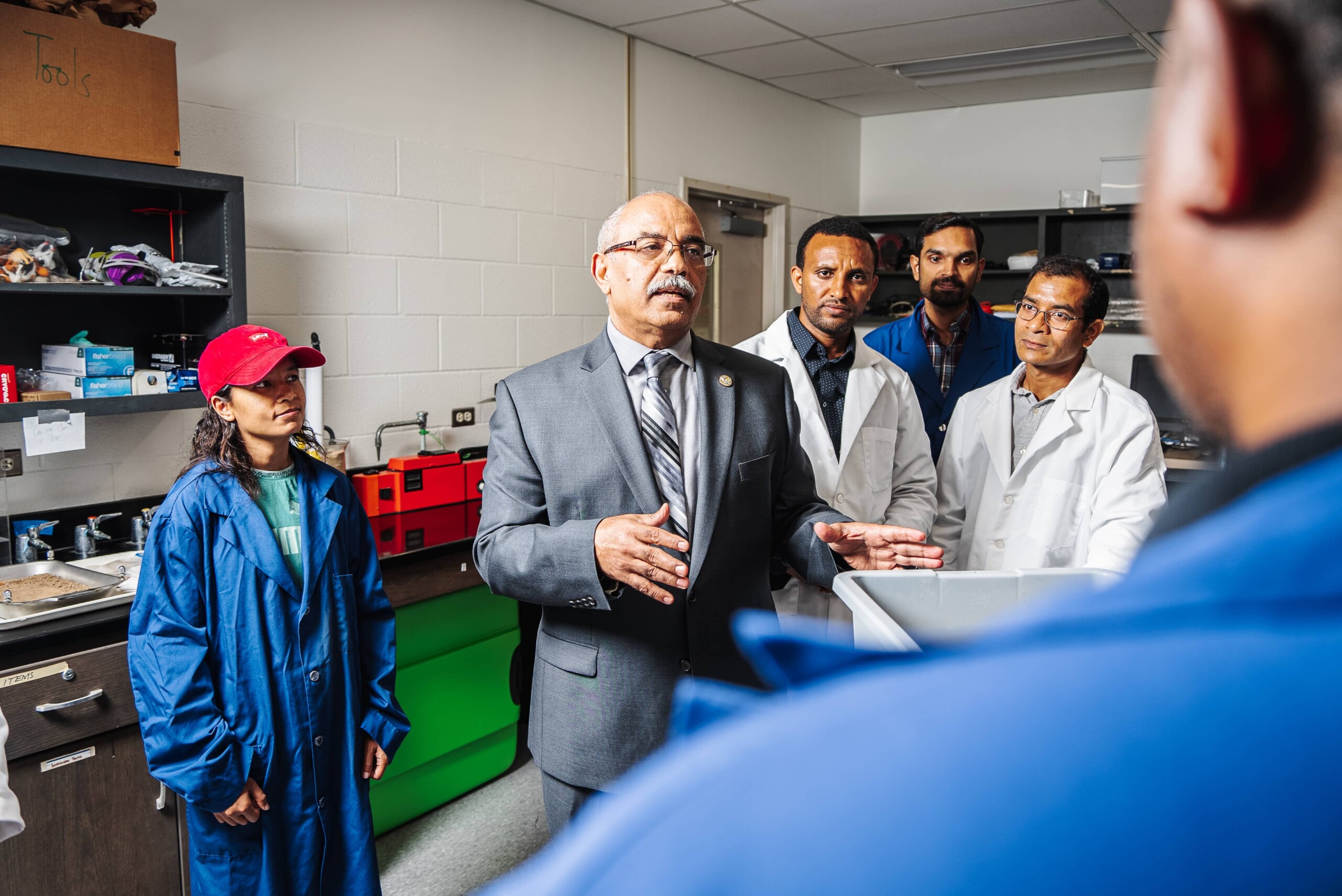Prairie View A&M University Professor Ali Fares, Ph.D., had a busy childhood growing up in a small village in Tunisia just ten miles from the Mediterranean coast. Between looking after the family’s cows and lambs, irrigating their crops, and helping out at his father’s convenience store, there was no time for playing.
However, the connection with water started early for the now-endowed professor of water security and water-energy-food nexus in the College of Agriculture and Human Sciences at PVAMU.
“Water management has been in my mind since I was a young person, irrigating crops and hauling water for my family,” Fares said. “It was reinforced during my first employment as an agriculture engineer with the Tunisia Ministry of Agriculture.”
Fares, who attended college and university in Tunisia, holds a 1996 Ph.D. in hydrologic science cluster and a 1990 Master of Science degree in agronomy/computer science from the University of Florida.
He joined PVAMU in 2013 to lead CAHS research initiatives and develop a robust research program in water security and natural resources amid global warming.
“Water, food and energy are at the heart of sustainable development,” Fares said. “There is a fast-rising demand for all three. Thus, integrated and sustainable management of water, food and energy is essential to resist current and future pressures and ensure a balanced approach that meets the needs of people, nature and the economy.”
To that end, Fares has testified before the U.S. House of Representatives Agriculture Committee, urging federal support to address “specific climate change needs of the underserved farming communities and train future professionals in climate-smart agriculture discipline.”
Fares’ research in artificial intelligence in agriculture as well as several inter-disciplinary, multi-institution projects, is supported by millions of dollars.
He has received multiple U.S. Department of Agriculture grants, including a $749,719 grant from the USDA-National Institute of Food and Agriculture to research smart agriculture, which uses technology to aid farming environments and techniques for better quality and production.
“Establishing an internationally known research program built on training future leaders in these areas is a major step toward my efforts in pursuing my passion.”

“Establishing an internationally known research program built on training future leaders in these areas is a major step toward my efforts in pursuing my passion.”
“Establishing an internationally known research program built on training future leaders in these areas is a major step toward my efforts in pursuing my passion,” he said.
Another recent $750,000 NIFA grant went to help build PVAMU’s capacity to conduct research and train future minority farmers and experts in precision agriculture, enabling University researchers to collaborate with other universities, institutions and laboratories on a joint project titled “AI-Based Program for Advancing Research, Education and Extension Activities in Precision Agriculture at PVAMU.”
Currently, Fares is a member of the author team of the U.S. Global Change Research Program’s Fifth National Climate Assessment Report analyzing the impacts of global change in the United States.
To date, Fares has published over 130 peer-reviewed articles and is the editor of Advances in Water Security Book Series and Climate Change and Extreme Events.
The work of this award-winning researcher has taken him to Florida, where he worked on several citrus irrigation and nutrient management projects to use smart technology to support the development of best management practices for water and nitrogen in the state.
In Hawaii, he helped develop a research program addressing water resource management that protected coastal water resources, minimized land erosion and developed predictive models analyzing the impact of Hawaii’s statewide bioenergy mandate.
Calling water security “the nexus of climate change and national security,” Fares aspires to research and, in time, mitigate the impact of climate change manifested through severe droughts, devastating floods and excessive heat storms, especially in under-developed countries.
Amid climate change, worsening global warming and growing populations increasingly straining limited water resources, he says smart agriculture is the way forward.

